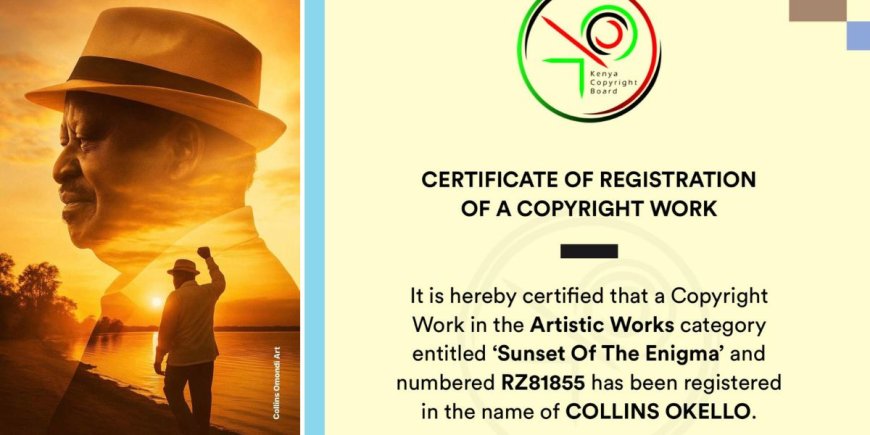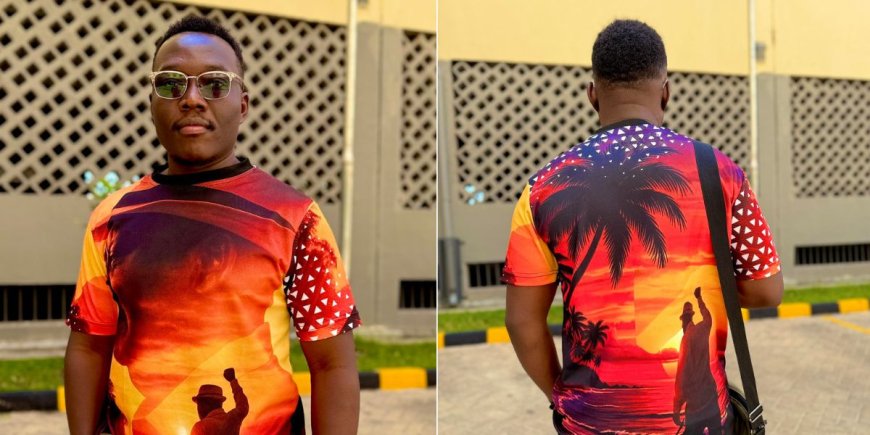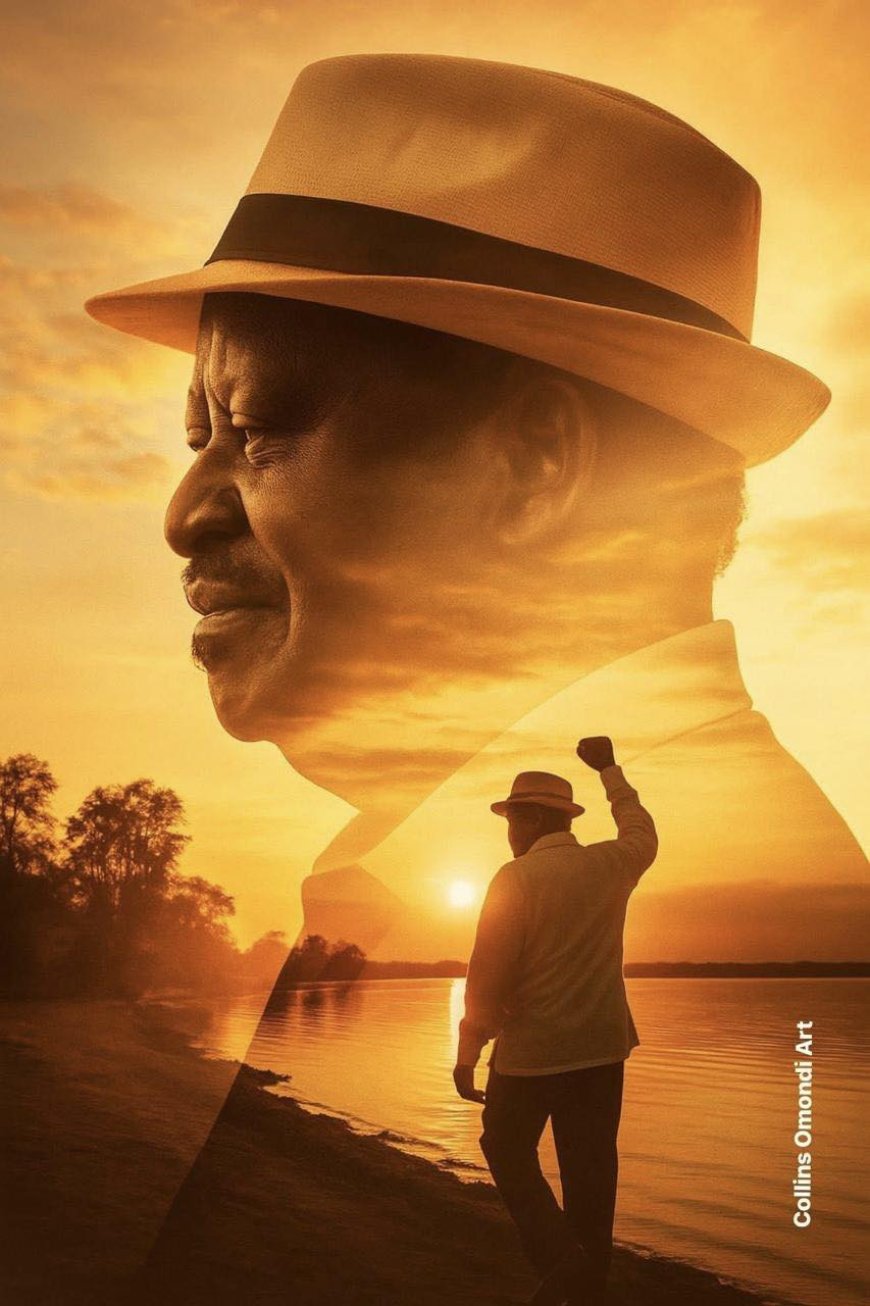Artist Copyrights Viral Raila Odinga Sunset Image: What This Means For Businesses
The certificate, he said, represents not just personal success but also a stand against exploitation in Kenya’s growing digital art scene.

Kisumu-based visual artist Collins Omondi Okello, best known for creating the viral Sunset of the Enigma artwork honoring the late former Prime Minister Raila Odinga, has officially obtained a copyright certificate to protect his piece from unauthorized commercial use.
Okello shared the news on Facebook on Tuesday, expressing relief and pride after weeks of anticipation. He had earlier hinted at plans to copyright the iconic image, explaining that too many people were exploiting his work for profit without his consent.
The certificate, he said, represents not just personal success but also a stand against exploitation in Kenya’s growing digital art scene.
In his post, Okello clarified that his decision to copyright the work was not intended to silence fans or restrict Kenyans from sharing the image online.

A photo collage of artiste Collins Omondi Okello donning a t-shirt branded with his artwork of the late Raila Odinga. /COLLINS OMONDI OKELLO.VIRAL TEA KE
“I finally have the certificate for the artwork. Changing the narrative one milestone at a time,” he wrote.
He added, “A misconception that needs to be cleared—this is not an action against reposting or resharing or for fair use. This is to protect against unscrupulous businesspeople who use the artwork for their own commercial gain without seeking authority or following the laid-down guidelines for use of copyrighted works.”
Okello’s artwork went viral shortly after Raila Odinga’s passing, resonating deeply with Kenyans nationwide who were mourning the opposition leader’s death.
The piece captured Raila against a striking sunset backdrop—symbolic of the end of an era—and quickly became the visual emblem of national mourning, circulating widely on social media, television, and even printed merchandise.
The artist, who had met Raila a decade earlier and gifted him a pencil drawing, revealed that he makes his living through commissioned artwork and print sales.
Following the viral success, Okello began producing signed, high-quality prints and merchandise to meet the demand from Raila’s supporters. His prices reflected the range of options available: T-shirts at Ksh1,500, caps at Ksh900, and limited-edition epoxy-mounted prints priced between Ksh3,500 and Ksh15,500, depending on size (A4–A1).
However, the move stirred mixed reactions. While some fans supported his right to monetize his creativity, others accused him of capitalizing on a national tragedy.
As the debate intensified, Okello noticed that other people had started printing and selling his design without permission. That was the breaking point—he filed a copyright application on October 23, determined to secure his intellectual property once and for all.
Understanding What This Means
Under the Kenya Copyright Act (Amended 2019), copyrighted works are automatically protected upon creation, but formal registration strengthens legal enforcement.
The Second Schedule of the Act defines what falls under “fair dealing,” the Kenyan equivalent of fair use, outlining situations where the public can legally use copyrighted material without authorization.
These exceptions fall under four categories. The general exception allows individuals to use copyrighted content for personal, non-commercial purposes—such as commentary, criticism, or reporting current events—so long as they properly credit the creator.
Works may also be used in parody, quotations, or legal proceedings, or if they appear incidentally, such as a mural captured in the background of a film.
In education, research, and broadcasting, the law allows limited use for teaching, academic study, or reporting news—again, provided the usage is non-commercial and the original author is acknowledged. Broadcasters may air publicly available works if no licensing body governs them, but they must offer fair compensation to the rights holder.
It’s also worth noting that Kenyan courts have the final authority to determine what constitutes fair use. There are no fixed numerical limits—such as a specific number of words, seconds, or images—so each case is judged individually based on context and intent.
For Okello, securing copyright for “Sunset of the Enigma” is both a personal victory and a public statement on the value of creative work in Kenya.
It sets a precedent for digital artists and content creators to protect their intellectual property in an age where viral content often blurs the line between appreciation and exploitation.







